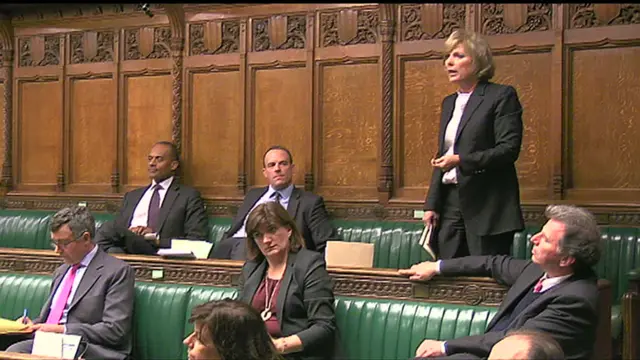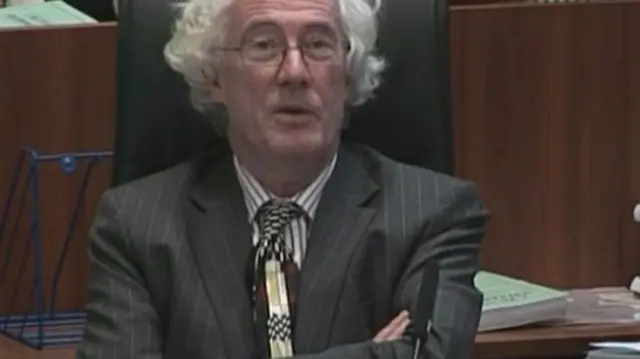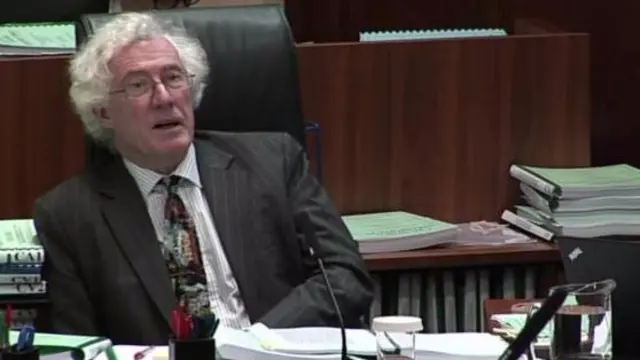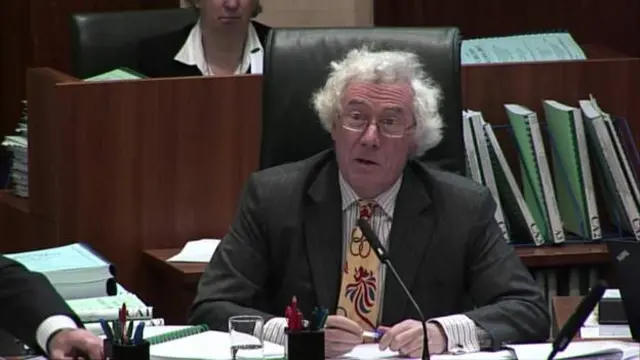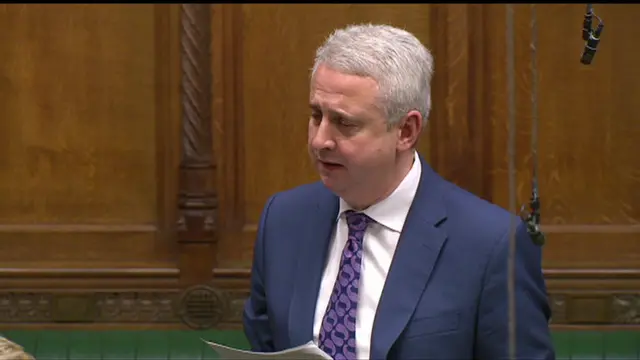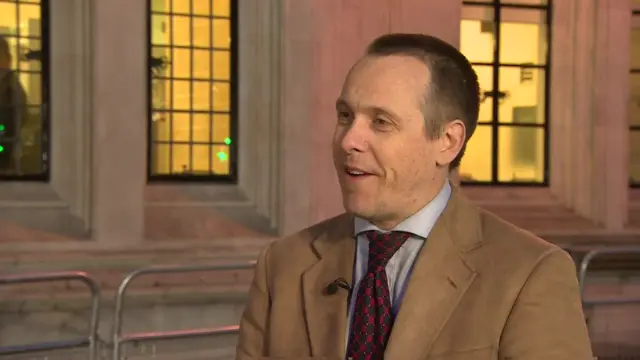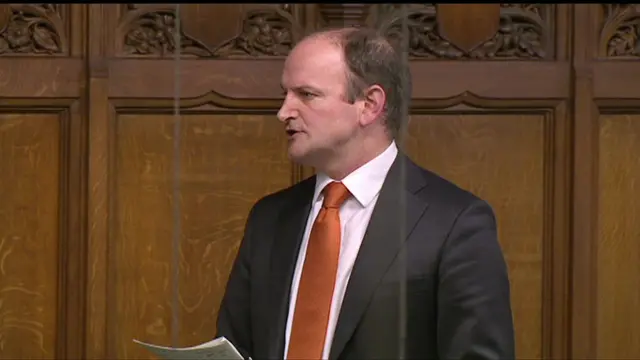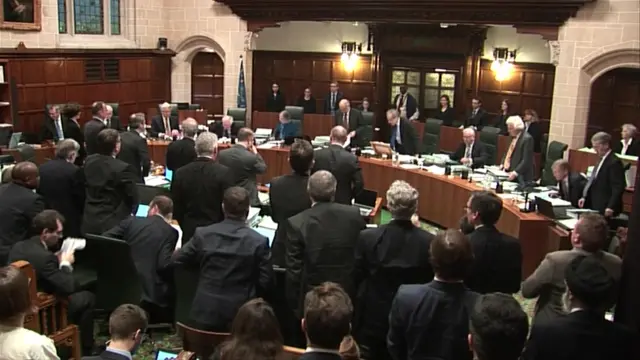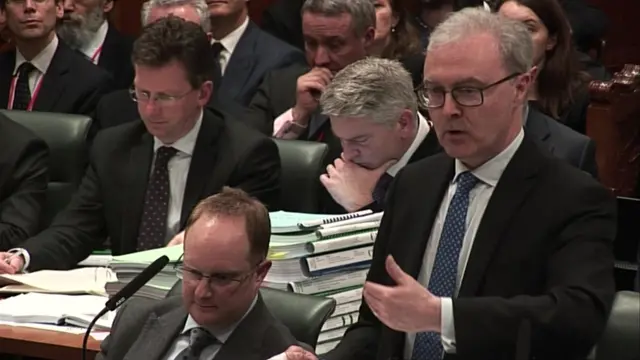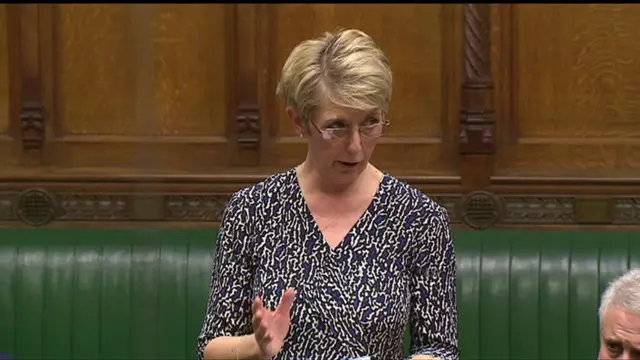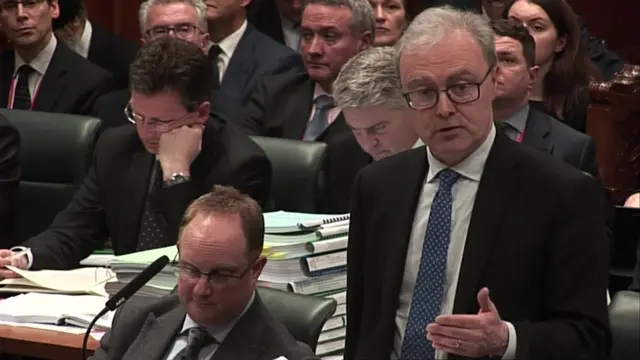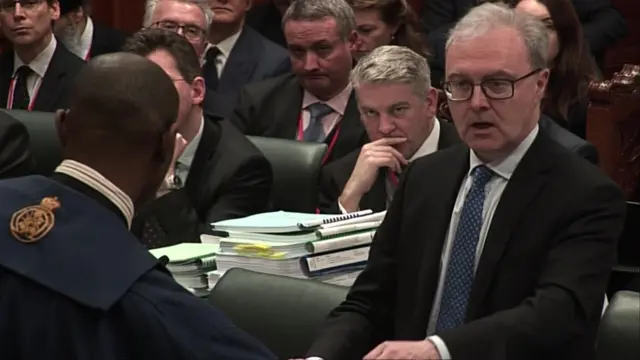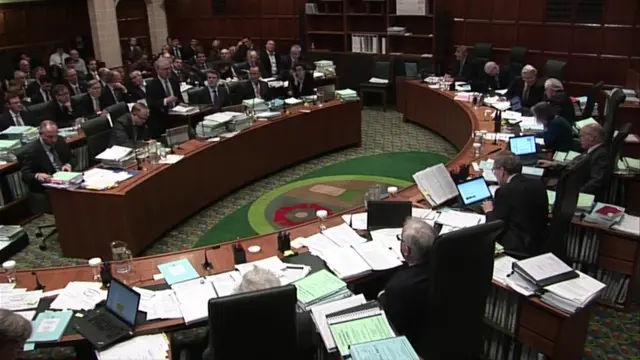'Vitriol, ignorance and paranoia'published at 16:55 GMT 7 December 2016
Brexit debate
 House of Commons
House of Commons
Parliament
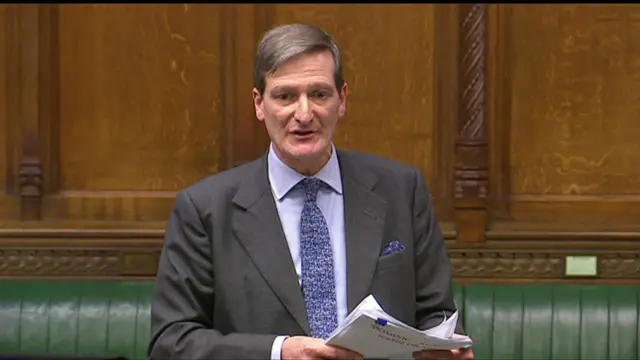
The former Attorney General Dominic Grieve says that the debate in the country and in Parliament so far has contained "vitriolic abuse, polemic argument without any substance,and ignorance of the ABCs of our constitution" and has led to a situation where some speeches "border on the utterly paranoid".
He says that the height of this was when a minister, who he does not name, asserted that Gina Miller - who brought the case against the government over whether Parliament should vote on triggering Article 50 - was doing something unacceptable.
"If we continue like this we are on a road to a very bad place," he says.
He says he was frustrated at the government's initial refusal to come up with a plan of what it plans to do before triggering Article 50; saying that once this is triggered "the government itself will have great difficulty controlling" the process.
